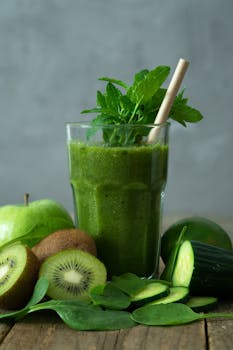Sharing a snack with your dog can be a sweet bonding moment, but not all human foods are safe for our furry friends. If you’ve ever wondered, “Can dogs eat pretzels?” you’re not alone. Pretzels might seem harmless, but they could pose unexpected risks to your pup’s health. Let’s break down the potential dangers of pretzels for dogs and explore some healthier alternatives that your canine companion will love.
🥨 Are Pretzels Safe for Dogs?
Pretzels are a popular salty snack, but they aren’t exactly dog-friendly. While a single, unsalted pretzel is unlikely to harm your dog, many pretzels contain ingredients that can lead to health issues. Here’s why you should think twice before sharing pretzels with your pup.
Most pretzels are high in sodium, which is harmful to dogs when consumed in large amounts. Excessive salt can lead to dehydration, electrolyte imbalances, and even sodium ion poisoning in severe cases. Additionally, some pretzels are flavored with ingredients like garlic, onion powder, or artificial sweeteners (like xylitol), all of which are toxic to dogs.
🛑 Risks of Pretzels for Dogs
Even if your dog gives you those irresistible puppy-dog eyes, it’s important to understand the risks associated with feeding them pretzels. Here are the main concerns:
- High sodium content – Dogs don’t need much salt in their diet, and too much sodium can cause vomiting, diarrhea, and excessive thirst.
- Potential for sodium ion poisoning – Large quantities of salt can lead to serious symptoms, including lethargy, tremors, or seizures.
- Harmful flavorings – Some pretzels are seasoned with garlic, onion, or other toxic spices for dogs.
- Xylitol danger – Sugar-free pretzels may contain xylitol, which is extremely toxic to dogs and can cause a dangerous drop in blood sugar.
- Choking hazard – Hard pretzels or small pieces can pose a choking risk, especially for smaller breeds.
Even plain pretzels that don’t contain harmful ingredients aren’t a nutritious option for dogs. They’re high in empty calories and carbohydrates, which can contribute to weight gain if eaten regularly.
🐾 Symptoms of Salt Toxicity in Dogs
If your dog accidentally eats too many pretzels or other salty foods, they could experience salt toxicity. Watch out for these symptoms:
- Excessive thirst and urination
- Vomiting or diarrhea
- Weakness or lethargy
- Loss of appetite
- Muscle tremors or stiffness
- Seizures or disorientation
In severe cases, salt toxicity can lead to coma or even be fatal if left untreated. If you suspect your dog has consumed a large amount of salt, contact your veterinarian immediately.
🍎 Healthy Snack Alternatives for Dogs
Instead of pretzels, there are plenty of safe and healthy snacks you can share with your dog. These options are not only safer but also more nutritious:
- Carrot sticks – Crunchy and low-calorie, carrots are a great snack for dogs.
- Apple slices – Remove the seeds and core, and your dog will enjoy this sweet, fiber-rich treat.
- Plain popcorn – Unsalted and unbuttered popcorn can be a fun, low-calorie snack for dogs in moderation.
- Blueberries – Packed with antioxidants, blueberries are a bite-sized superfood for your pup.
- Green beans – Fresh or steamed green beans are a healthy, crunchy snack.
- Sweet potato slices – Cooked and plain, sweet potatoes are rich in vitamins and easy to digest.
Always introduce new foods slowly and in small quantities to ensure your dog doesn’t have an adverse reaction. Remember, treats should make up no more than 10% of your dog’s daily caloric intake.
🦴 How to Keep Your Dog Safe
Prevention is the key to keeping your dog safe from harmful foods like pretzels. Here are some simple tips to protect your furry friend:
- Store snacks out of reach – Keep pretzels and other human foods in sealed containers or high cabinets where your dog can’t access them.
- Read ingredient labels – Always check for harmful ingredients like xylitol, garlic, or onion in any food you plan to share with your dog.
- Teach “leave it” – Train your dog to respond to commands like “leave it” or “drop it” to prevent them from eating something dangerous.
- Stick to dog treats – Offer treats specifically made for dogs, which are formulated to be safe and nutritious.
If your dog does manage to sneak a pretzel or two, monitor them for any signs of distress and consult your veterinarian if you’re concerned.
FAQs
Can dogs eat plain, unsalted pretzels? A small plain, unsalted pretzel is unlikely to harm your dog, but it’s still not a healthy snack. Stick to dog-friendly alternatives instead.
What should I do if my dog eats a lot of pretzels? Contact your veterinarian if your dog consumes a large quantity of pretzels, especially if they were salted or flavored. Monitor for symptoms like vomiting, excessive thirst, or lethargy.
Are soft pretzels safer than hard pretzels for dogs? Soft pretzels may pose less of a choking hazard, but they still contain unhealthy levels of salt and carbohydrates. It’s best to avoid feeding any type of pretzel to your dog.
Can puppies eat pretzels? No, puppies should not eat pretzels. Their smaller size makes them even more vulnerable to the risks of high sodium and harmful ingredients.
Are there any dog-friendly pretzel alternatives? Yes! You can bake homemade dog treats shaped like pretzels using dog-safe ingredients like whole wheat flour, peanut butter (xylitol-free), and water.
References
Book a $49 online vet consultation at https://www.dialavet.com for fast, expert advice.








